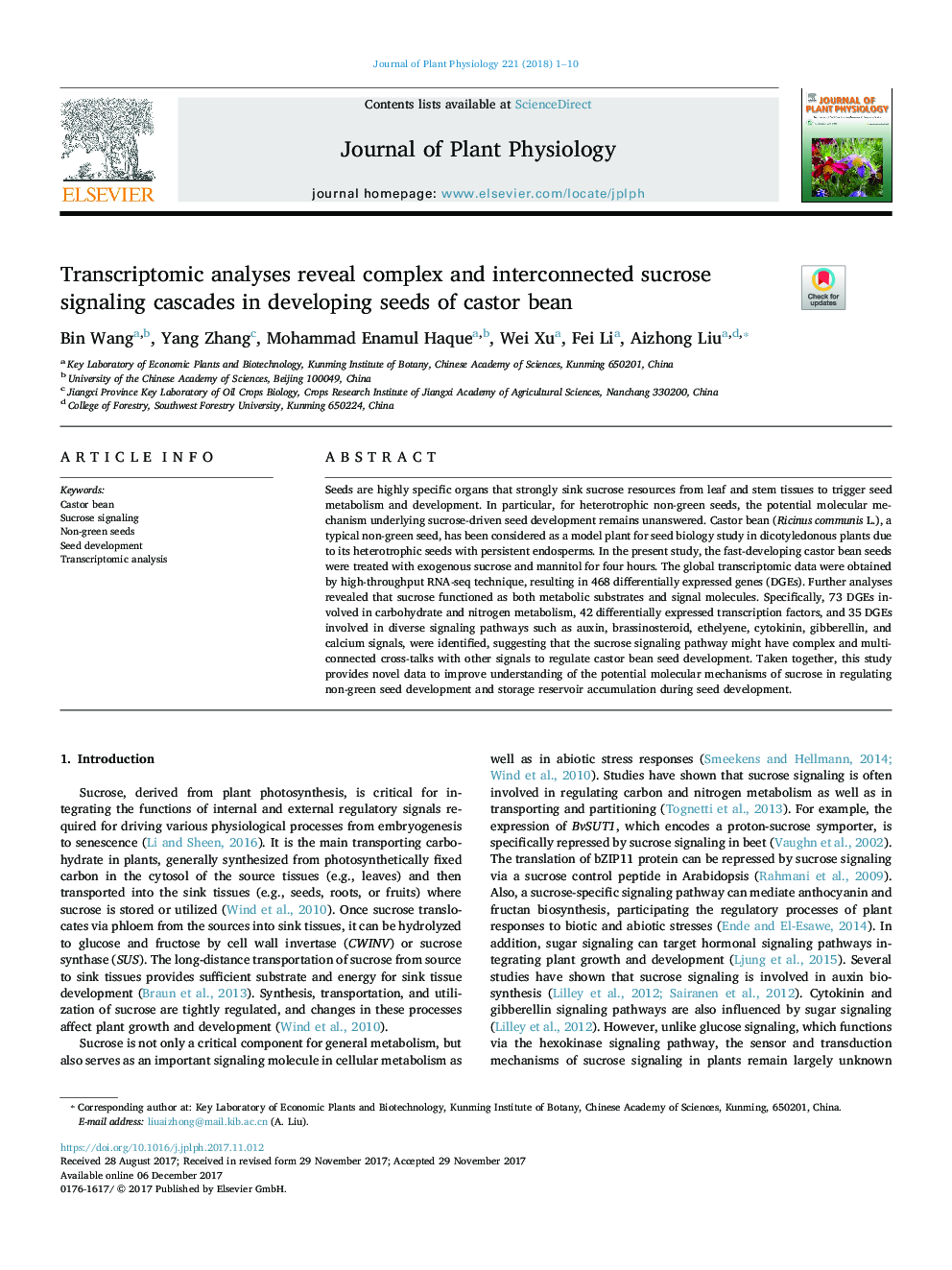| Article ID | Journal | Published Year | Pages | File Type |
|---|---|---|---|---|
| 8386955 | Journal of Plant Physiology | 2018 | 10 Pages |
Abstract
Seeds are highly specific organs that strongly sink sucrose resources from leaf and stem tissues to trigger seed metabolism and development. In particular, for heterotrophic non-green seeds, the potential molecular mechanism underlying sucrose-driven seed development remains unanswered. Castor bean (Ricinus communis L.), a typical non-green seed, has been considered as a model plant for seed biology study in dicotyledonous plants due to its heterotrophic seeds with persistent endosperms. In the present study, the fast-developing castor bean seeds were treated with exogenous sucrose and mannitol for four hours. The global transcriptomic data were obtained by high-throughput RNA-seq technique, resulting in 468 differentially expressed genes (DGEs). Further analyses revealed that sucrose functioned as both metabolic substrates and signal molecules. Specifically, 73 DGEs involved in carbohydrate and nitrogen metabolism, 42 differentially expressed transcription factors, and 35 DGEs involved in diverse signaling pathways such as auxin, brassinosteroid, ethelyene, cytokinin, gibberellin, and calcium signals, were identified, suggesting that the sucrose signaling pathway might have complex and multi-connected cross-talks with other signals to regulate castor bean seed development. Taken together, this study provides novel data to improve understanding of the potential molecular mechanisms of sucrose in regulating non-green seed development and storage reservoir accumulation during seed development.
Related Topics
Life Sciences
Agricultural and Biological Sciences
Agronomy and Crop Science
Authors
Bin Wang, Yang Zhang, Mohammad Enamul Haque, Wei Xu, Fei Li, Aizhong Liu,
